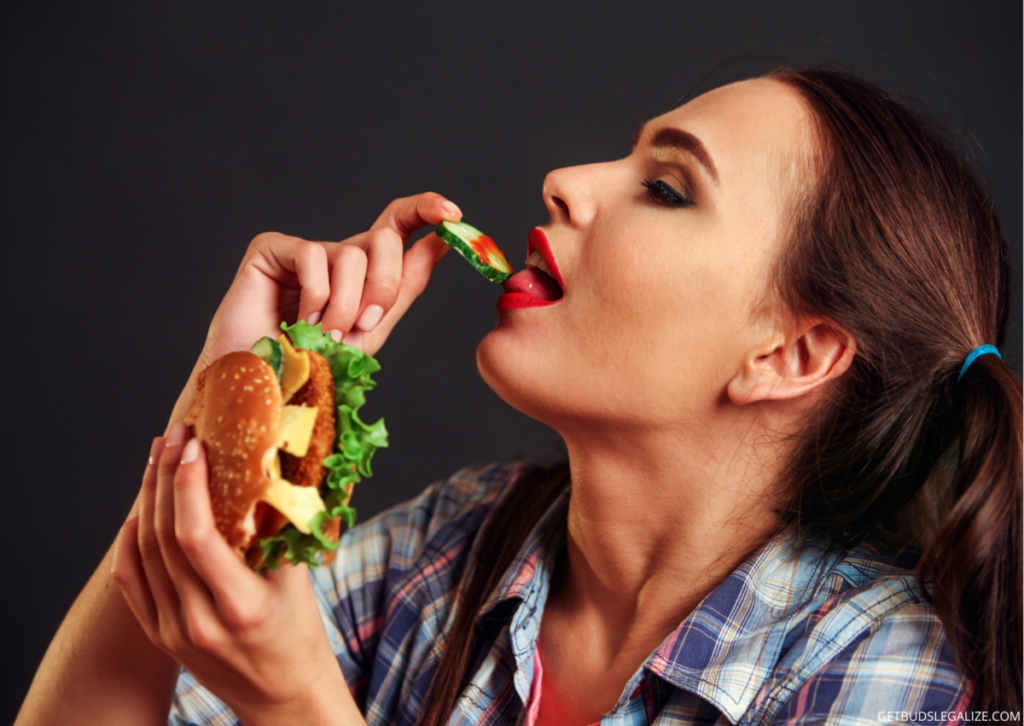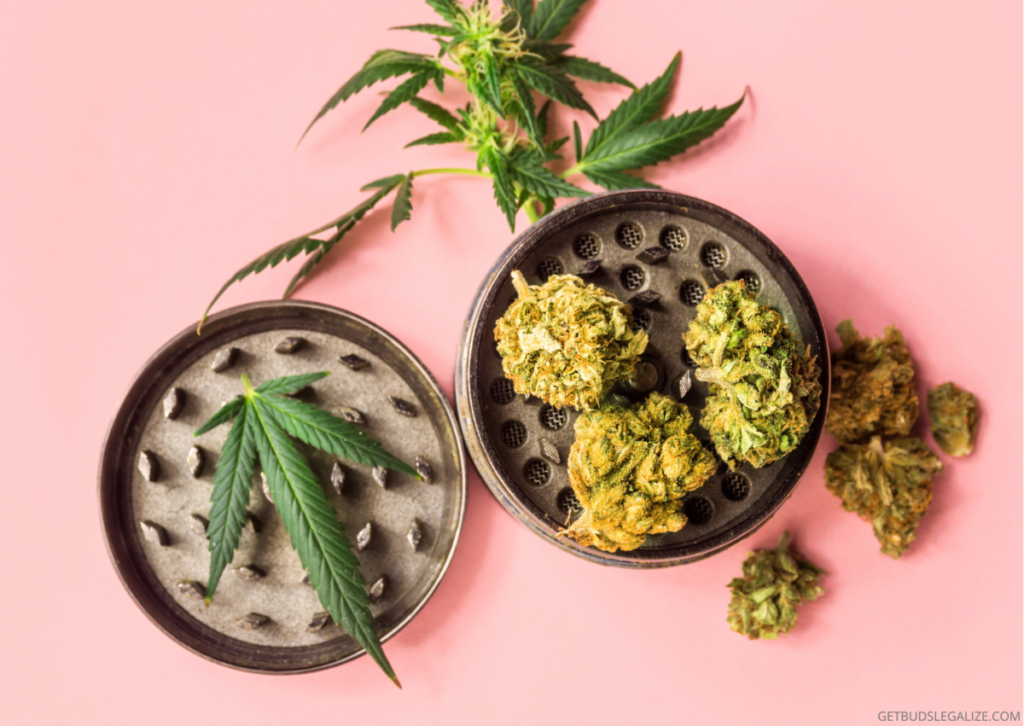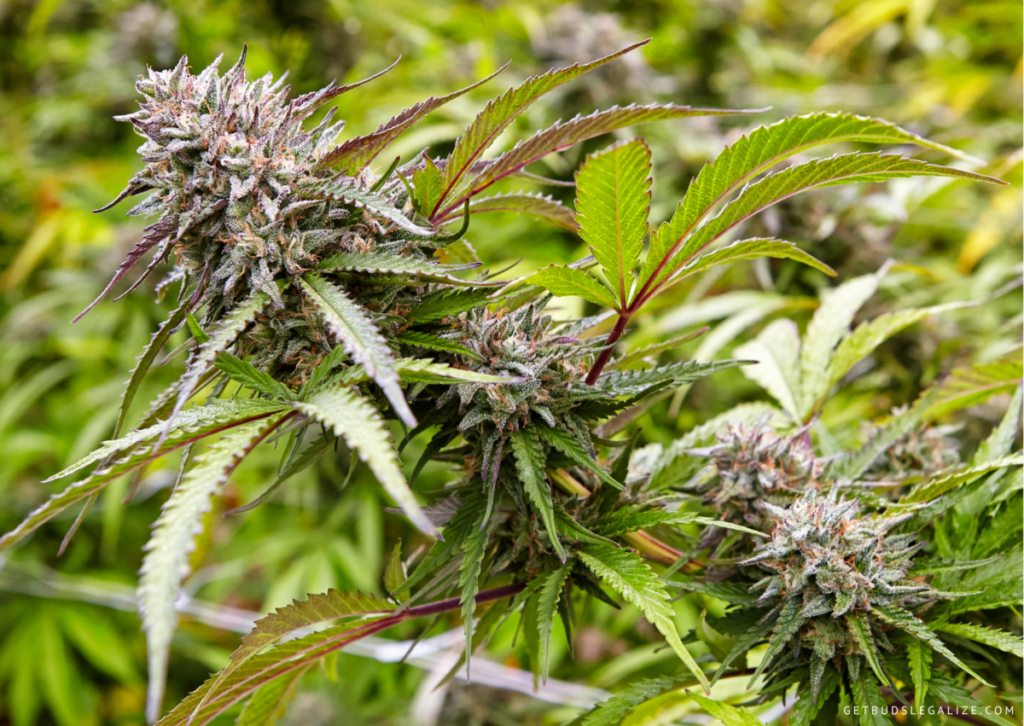Does Smoking Weed Make You Lose Weight?
This is a question that many people have asked themselves, especially in light of the recent legalization of cannabis in some parts of the world. While some anecdotal evidence suggests that weed may help with weight loss, the scientific research is not conclusive.
In this blog post, we will explore the possible link between weed and weight loss, and discuss how weed affects appetite and metabolism.
What Is The Link Between Weed and Weight Loss?
Weed, or cannabis, is a plant that contains various compounds called cannabinoids, such as tetrahydrocannabinol (THC) and cannabidiol (CBD). These cannabinoids interact with the endocannabinoid system in the body, which regulates various functions such as mood, pain, memory, appetite, and metabolism.
Some studies have found that cannabis users tend to have lower body mass index (BMI) and lower rates of obesity than non-users. However, this does not necessarily mean that weed causes weight loss. There are many factors that could explain this association, such as lifestyle choices, genetics, or other substances that cannabis users may consume.
Moreover, the effects of weed on weight may vary depending on the type, dose, frequency, and method of consumption. For example, some strains of weed may have more THC than CBD, which could increase appetite and cause munchies.
On the other hand, some strains may have more CBD than THC, which could reduce appetite and suppress hunger. Similarly, smoking may have different effects than vaping or eating edibles.
How Does Weed Affect Appetite and Metabolism?

One of the most common effects of weed is stimulating appetite, or causing munchies. This is because THC binds to cannabinoid receptors in the brain that are involved in regulating hunger and satiety signals. THC can also increase the release of dopamine, a neurotransmitter that enhances the pleasure and reward of eating.
However, not all weed users experience munchies. Some may actually feel less hungry or more full after consuming weed. This could be due to the effects of CBD or other cannabinoids that may counteract the appetite-stimulating effects of THC. CBD can also modulate serotonin levels in the brain, which can affect mood and appetite.
Additionally, weed may affect metabolism in various ways. Some studies have suggested that weed may increase the resting metabolic rate (RMR), which is the amount of calories burned while at rest. This could be because weed activates the sympathetic nervous system, which increases heart rate, blood pressure, and oxygen consumption.
However, other studies have found no significant effect of weed on RMR or total energy expenditure (TEE), which is the number of calories burned during physical activity and digestion. Furthermore, weed may impair glucose metabolism and insulin sensitivity, which could increase the risk of diabetes and metabolic syndrome.
Therefore, weed may affect appetite and metabolism differently depending on the individual and the type of weed consumed. The net effect of weed on weight may depend on how much and how often one consumes weed, as well as how much and what one eats after consuming weed.
Can Weed Help You Burn More Calories?
Another way that weed could potentially help with weight loss is by increasing physical activity and energy expenditure. Some people report that weed makes them feel more energetic, motivated, and creative, which could lead them to engage in more exercise or recreational activities. Exercise is known to be beneficial for weight loss, as it burns calories, builds muscle mass, and improves health and mood.
However, not all people experience the same effects of weed on physical activity. Some people may feel more relaxed, sleepy, or couch-locked after smoking weed, which could reduce their motivation and ability to exercise.
Moreover, exercise alone may not be enough to achieve significant weight loss if it is not accompanied by a healthy diet and lifestyle. Therefore, relying on weed to boost physical activity may not be a reliable or sustainable strategy for weight loss.
What Are The Risks and Benefits of Using Weed for Weight Loss?

Using weed for weight loss may have some potential benefits, but also some risks that you should be aware of. Here are some of the pros and cons of using weed for this purpose:
Benefits:
- Weed may reduce inflammation and oxidative stress in your body, which is linked to obesity and chronic diseases.
- Weed can improve your mood by reducing anxiety and stress, which are common triggers for emotional eating and binge eating.
- Weed may enhance your sensory perception and enjoyment of food, which could help you practice mindful eating and savor your meals more.
- Weed may help you cope with chronic pain or other medical conditions that may limit your physical activity or affect your quality of life.
Risks:
- Weed may impair your judgment and decision-making skills, which could lead you to make poor food choices or overeat.
- Weed may interfere with your sleep quality and duration, which are important for maintaining a healthy weight and metabolism.
- Weed may cause dry mouth or cottonmouth, which could make you drink more sugary beverages or eat more salty snacks to quench your thirst.
- Weed may have negative effects on your cardiovascular health, such as increasing your heart rate, blood pressure, and risk of arrhythmias.
- Weed may interact with other medications or supplements you are taking, or worsen some medical conditions you have.
How to Choose the Best Cannabis Strain for Losing Weight?

There is no definitive answer to which cannabis strain is the best for losing weight, as different strains may work differently for different people, depending on their genetics, lifestyle, preferences, and goals.
However, there are some general guidelines that can help you narrow down your options and find the strain that suits you best:
1. You Should Look for Strains That Have a High CBD-to-THC Ratio:
CBD is a non-psychoactive compound that has many health benefits, including reducing inflammation, pain, anxiety, and seizures. CBD can also counteract some of the negative effects of THC, such as paranoia, anxiety, and munchies. THC is the main psychoactive compound in cannabis that causes high feelings and euphoria.
THC can also stimulate the appetite and increase the sensitivity to taste and smell, which can make food more appealing and enjoyable. Therefore, strains that have more CBD than THC can help you control your appetite and avoid overeating.
2. You Should Look for Strains That Have a Sativa-Dominant Profile:
Sativa is one of the two main types of cannabis plants, along with indica. Sativa strains tend to have more uplifting, energizing, and cerebral effects, while indica strains tend to have more relaxing, sedating, and physical effects. Sativa strains can help you boost your mood, motivation, creativity, and focus, which can make you more active and productive.
Indica strains can help you relax, unwind, sleep, and relieve stress, which can be beneficial for your health and well-being but may also make you lazy and couch-locked.
3. You Should Look for Strains That Have Specific Terpenes That Can Enhance Your Weight Loss Efforts:
Terpenes are aromatic compounds that give cannabis its distinctive smell and taste. Terpenes also have various effects on the body and mind, depending on their type and concentration. Some of the terpenes that can help you achieve your goal are:
- Humulene: This terpene has a woody and earthy aroma and is found in hops, basil, clove, and black pepper. Humulene can suppress appetite and reduce inflammation.
- Limonene: This terpene has a citrusy and fruity aroma and is found in lemon, orange, grapefruit, and mint. Limonene can elevate mood, relieve stress, and increase energy.
- Pinene: This terpene has a piney and fresh aroma and is found in pine needles, rosemary, sage, and eucalyptus. Pinene can improve memory, alertness, and focus.
- Caryophyllene: This terpene has a spicy and peppery aroma and is found in black pepper, cloves, cinnamon, and oregano. Caryophyllene can reduce pain, inflammation, anxiety, and depression.
Some Examples of Cannabis Strains That Have a High CBD to THC Ratio, a Sativa-Dominant Profile, and Some of These Terpenes Are:

- Alpine Delight CBD: This strain has a CBD to THC ratio of 50:1 and has a floral and fruity fragrance. It has a relaxing and calming effect that can ease pain, inflammation, and insomnia.
- CBD Auto Charlotte’s Angel: This strain has a CBD-to-THC ratio of 17:1 and has a herbal and piney scent. It has a mild and uplifting effect that can enhance mood, focus, and social interactions.
- Skunk Dream CBD: This strain has a CBD to THC ratio of 26:1 and has a skunky and earthy aroma. It has a balanced and soothing effect that can relieve stress, anxiety, and depression.
What Are Some Alternative Ways to Lose Weight?
The best way to lose weight is to adopt a healthy lifestyle that includes a balanced diet and regular physical activity. A balanced diet should consist of a variety of foods from different food groups, such as fruits, vegetables, whole grains, lean proteins, low-fat dairy products, nuts, seeds, and healthy fats. A balanced diet should also limit the intake of alcohol, added sugars, saturated fats, trans fats, and sodium.
Regular physical activity should include at least 150 minutes of moderate-intensity aerobic exercise per week and at least two sessions of strength training per week. Physical activity can help you burn calories, build muscle mass, improve cardiovascular health, reduce stress levels, and enhance mood.
In addition to diet and exercise, you may also benefit from other strategies such as drinking more water, getting enough sleep, managing stress, and seeking professional or social support.
The Bottom Line
Using weed for weight loss may have some benefits, but it also comes with some risks and drawbacks. Therefore, it is not recommended as a safe or effective way to lose weight. Instead, one should follow a healthy lifestyle that supports their physical and mental health and well-being.
FAQs
Weed is well-known for causing the “munchies”, or an increased appetite and craving for food. This is because cannabis stimulates the release of ghrelin, a hormone that signals hunger to the brain.
Some studies have also shown that cannabis enhances the sensory perception of food, making it more appealing and enjoyable. However, not all cannabis users experience munchies, and some may even have a reduced appetite. This may depend on the strain of cannabis, the mode of consumption, and the person’s tolerance and mood.
Weed may have some influence on body fat distribution and composition. Some studies have suggested that cannabis users have a lower body mass index (BMI) and a lower percentage of body fat than non-users. This may be due to the higher metabolic rate, the lower intake of alcohol, and the higher intake of fruits and vegetables among cannabis users.
However, other studies have found no significant difference or even a higher BMI and body fat among cannabis users. This may be due to increased calorie intake, lower physical activity, and impaired glucose metabolism among cannabis users.
Marijuana is a plant that contains cannabinoids, which are compounds that can affect the brain and body in various ways. Some people use marijuana for medical or recreational purposes, but it may also have some side effects, including weight gain.
Gain of weight can occur due to increased appetite, reduced physical activity, changes in metabolism, or hormonal imbalances caused by medical marijuana use. However, the effects of marijuana on weight are not consistent and may depend on several factors, such as the amount, frequency, and type of marijuana consumed, as well as the individual’s genetics, lifestyle, and health status.
Therefore, it is not possible to say for sure whether marijuana causes weight gain or not. More research is needed to understand the complex relationship between marijuana and weight.
If you are concerned about your weight or have any medical conditions, you should consult your doctor before using medical marijuana.
Weed munchies are the increased appetite and desire for food that some people experience after smoking or consuming cannabis. Cannabis contains various compounds called cannabinoids, such as THC and CBD, that interact with the endocannabinoid system in the body.
The ECS regulates many functions, including mood, pain, memory, and appetite. When cannabis activates the endocannabinoid system, it can stimulate the release of hormones that make you feel hungry, such as ghrelin. It can also enhance your sense of smell and taste, making food more appealing and satisfying.
Weed munchies are not inherently good or bad, but they can have different effects depending on the person and the situation. For some people, weed munchies can be beneficial, especially if they have medical conditions that cause loss of appetite, such as cancer, HIV/AIDS, or anorexia. Cannabis can help them eat more and gain weight, which can improve their health and quality of life.
For others, weed munchies can be problematic, especially if they have dietary restrictions, health issues, or weight goals. Cannabis products can make them overeat and consume unhealthy foods, which can lead to weight gain, diabetes, heart disease, and other complications.
If you want to enjoy cannabis without getting the munchies, or at least reduce their intensity, here are some tips that might help:
- Choose strains that have lower THC levels and higher CBD levels. THC is the main cannabinoid that triggers munchies, while CBD can counteract its effects and suppress appetite.
- Eat a balanced meal before smoking or consuming cannabis. This can help you feel full and prevent hunger pangs later on.
- Drink plenty of water or other hydrating fluids. Sometimes thirst and hunger can be confused, so staying hydrated can help you avoid unnecessary snacking.
- Keep healthy snacks handy. If you do get the munchies, opt for fruits, vegetables, nuts, yogurt, or other nutritious foods that can satisfy your cravings without adding too many calories or fats.
- Distract yourself from other activities. Instead of focusing on food, engage in something else that can keep your mind and body busy, such as watching a movie, playing a game, listening to music, or exercising.

















